We’ve all picked up a bitter cup of coffee and wondered what went wrong. It can be frustrating to encounter this bitter disappointment, but don’t worry!
As a seasoned barista with a decade of experience, I’ve encountered and successfully troubleshooted these common reasons numerous times.
The good news is that rectifying these issues is not as complicated as it might initially seem.
In this article, I’ll walk you through the various reasons why coffee tends to taste bitter, shedding light on the factors responsible for producing that unwanted sharpness in your brew.
I will also let you in on a surprising yet effective ingredient that can help you the bitter brew, ensuring you savor the rich, smooth flavors you truly desire in your daily cup of joy.
So let’s dive in and uncover the secrets to banishing bitterness from your morning cup of coffee!
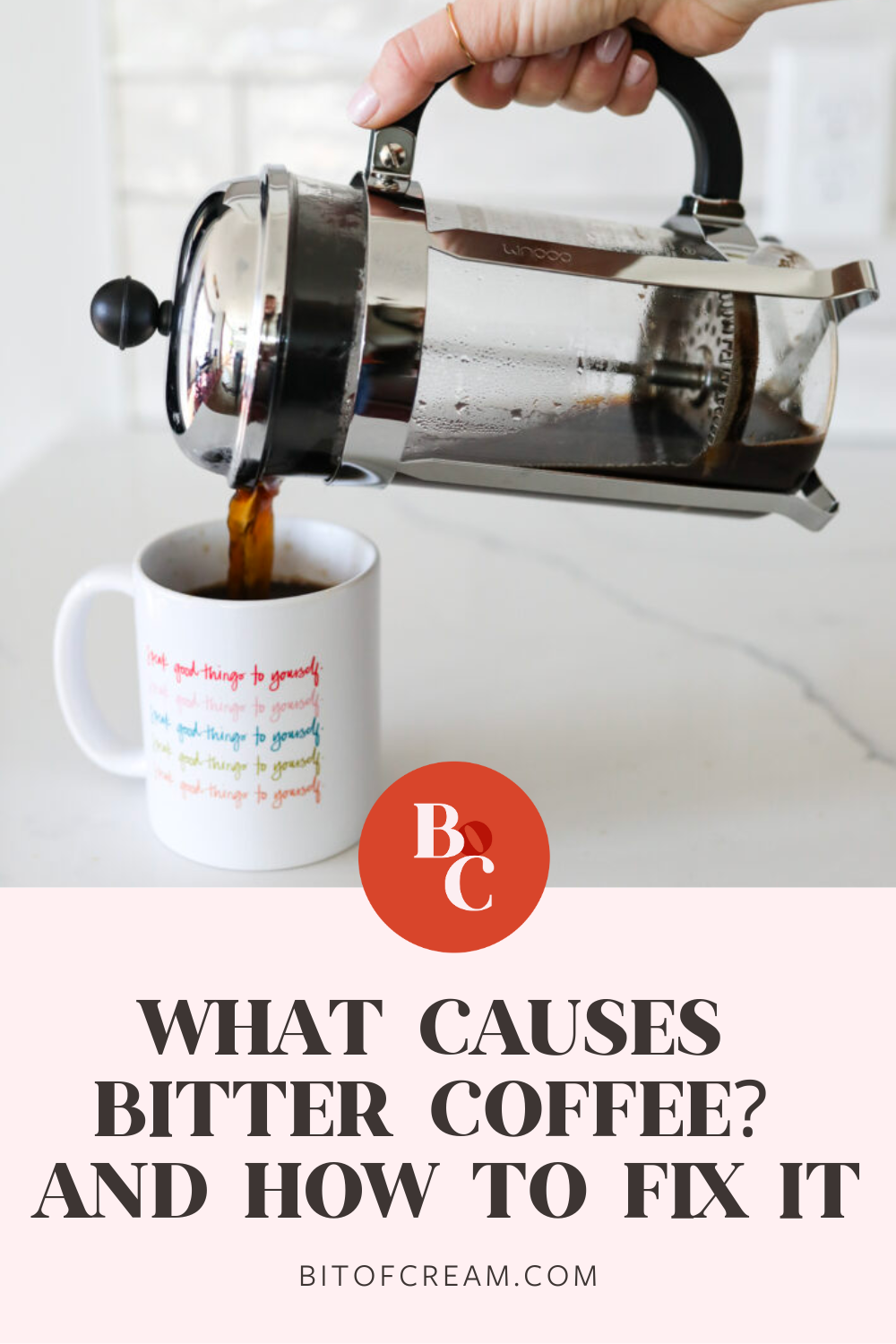
What produces the bitter taste?
In 99% of cases where your coffee tastes bitter or harsh, the main factor is probably the grounds being over-extracted.
Over-extraction means that too much flavor was extracted from the ground coffee, including flavors that don’t taste great. Let me explain the basics.
When ground coffee is exposed to water, the flavors come out. First brightness, then sweetness, and eventually bitterness. For the best (and tastiest) results, you want to limit the amount of bitterness that extracts.
There are a few other reasons why over-extraction happens.
If you’re more of a sweet drink fan, don’t miss the chance to see the best lineup of coffee syrups to add to your home collection.
Or maybe you’re looking for a more creamy coffee experience once you’ve gotten the bitterness issue resolved, try out a cafe misto for size, they’re easy to make and a delicious treat!
Extraction Time
As a general rule, the longer that coffee grinds are exposed to water, the more extraction happens. Every brew method has a target extraction time that tends to make the best coffee.
I’ve found that French Press is over-extracted all over the place because the coffee isn’t poured soon enough. It’s happened to me too.
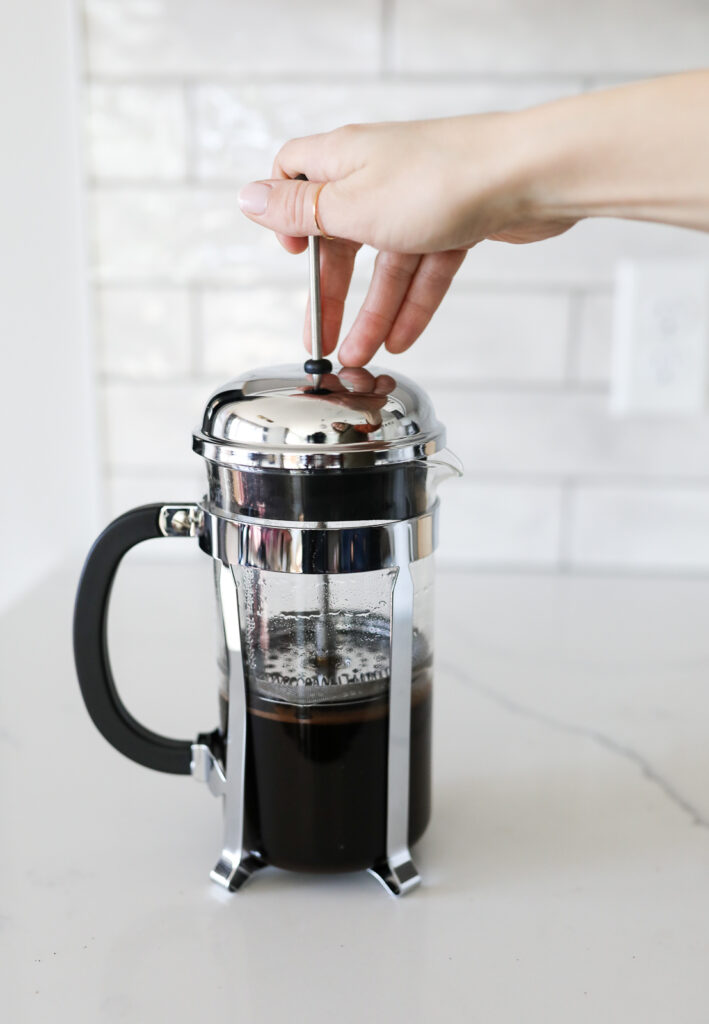
If you’re looking for a unique spin when using your French Press, try making your own French Press cold brew with our quick and simple recipe.
It’s easy enough to get carried away by a chore or conversation while the carafe sits on your countertop waiting to be poured. All the while, the flavor is being extracted, including the bitter compounds you’ll want to leave behind.
Grind Size
The coffee grind size is another important factor during coffee extraction process. The finer the grind size, the faster your coffee will extract.
If you know that your coffee brewing is taking the correct amount of time, and it’s still bitter, then this is the first thing I’d investigate.
When the grind size is too fine, grounds are overexposed to water. The size of the grind needs to match your brewing method. Most grinders are adjustable, and it’s easy to get one stuck on the wrong setting on accident.
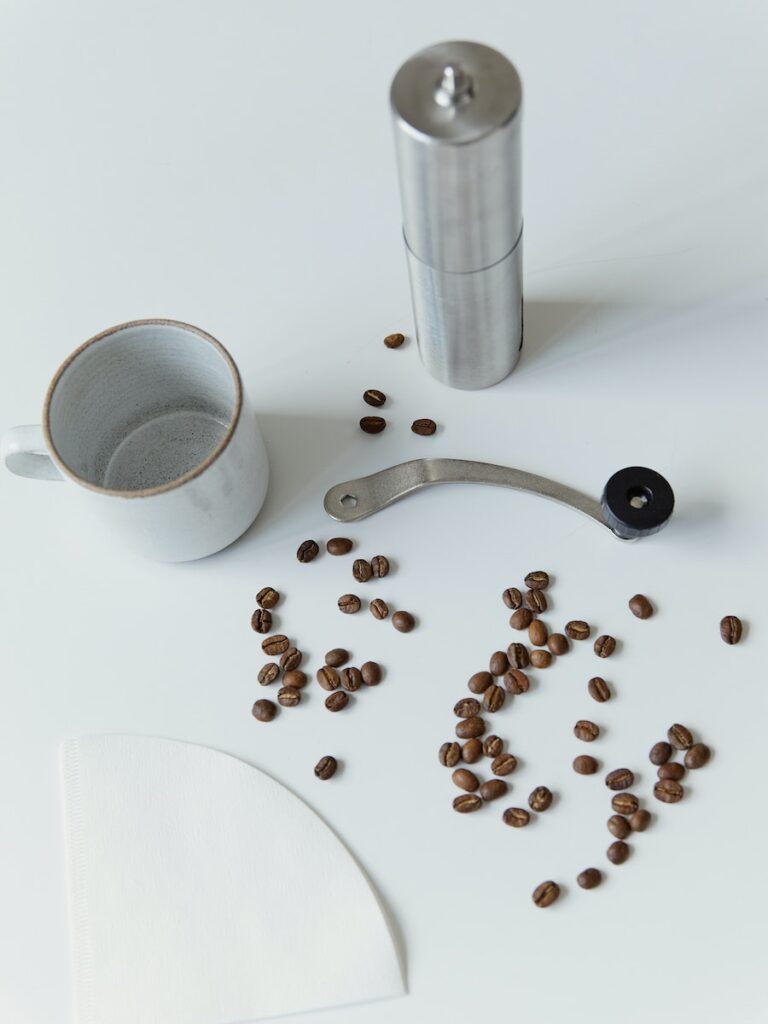
If you’re looking for a manual coffee grinder option, there are several great models on the market these days.
If your grind is too fine, make it larger. Coarse coffee grounds mean less surface area of the coffee is exposed to water.
Sometimes finding the right grind size can be challenging, but on this coffee grind size chart you’ll be able to determine the perfect size for your brewing needs and as a bonus, you can do it for free at your local Starbucks!
Dose Ratio
The coffee-to-water ratio is the proportion of coffee to water used in brewing.
If your ratio is off, say you added way too much water and not enough coffee to balance the ratio, this also causes over-extraction.
A meager amount of coffee grinds swimming in an ocean of hot water will cause over-extraction bitterness and lead to a bad cup of coffee. Using the correct ration of coffee-to-water ensures even extraction of the coffee.
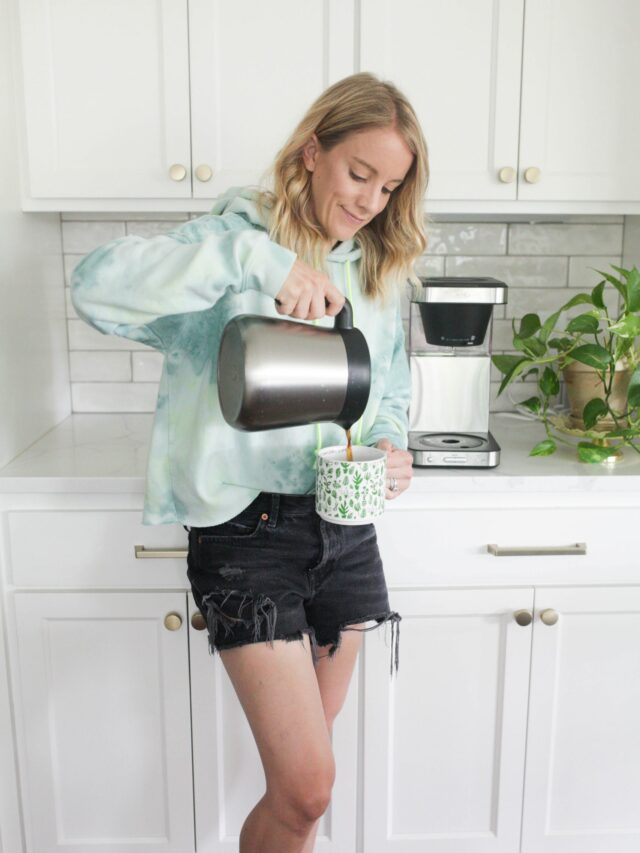
Water Temperature
Another reason you’re running into bitter coffee might be that your water is too hot.
Different brewing methods call for different brewing temperatures. But brew water should never reach the level of boiling.
If you’re using a stovetop kettle to brew your coffee without a thermometer, it’s easy to overheat the water. This burns the coffee and results in a bitter flavor.
The solution? I recommend an electric kettle as these have a manual temperature setting to brew cooler water.
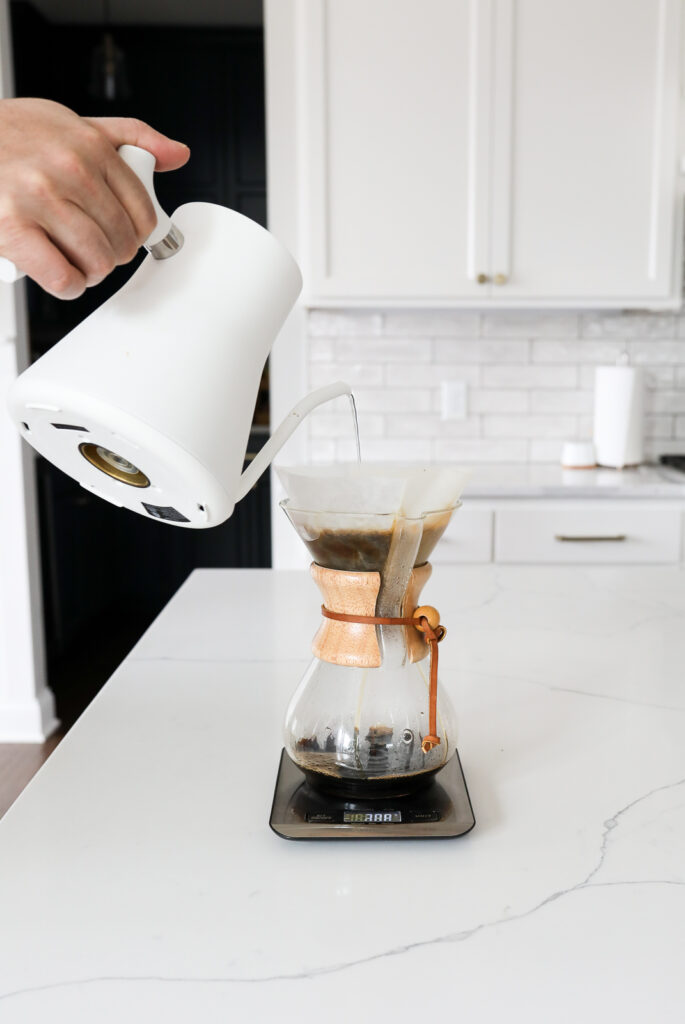
This way, you can adjust the temperature for different brew methods. Otherwise, there are always stovetop kettles with thermometers built-in. The ideal water temperature for most brew water should be between 195 F – 205 F.
It’s also important to keep in mind that you’re using the right type of water, check out our full water coffee guide that goes over the perfect types of water for a great cup of joe.
Over-Roasted Beans
Ok, this one isn’t an extraction issue. It’s a matter of ingredient quality.
Big coffee companies are roasting huge batches of coffee at a time, and it’s very easy for some of that coffee to be over-roasted leading to bad beans. A good quality coffee often contains a pleasant, bitter flavor, if any.
It’s hard to find a coffee roast that checks all of the boxes, and even harder to find one that is accessible in the store or online – check out these Amazon coffee picks that are some of the top rated roasts on the market.
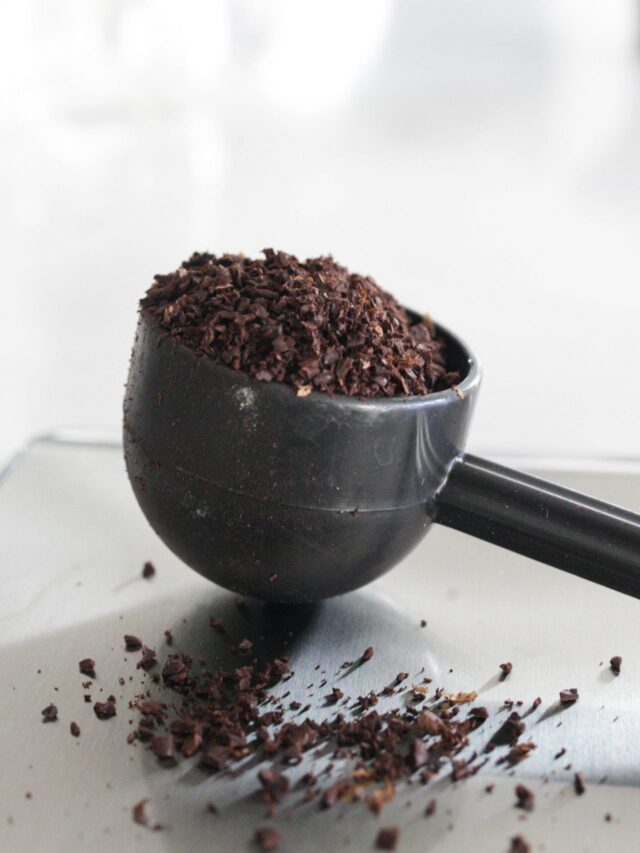
If other adjustments to your coffee set-up don’t fix the issue, you may need to switch up your roast or brand. It could even be that the dark roast from one roaster is too dark, while their lighter roasts are better.
If you’re stuck on whether to go for dark roast or medium roast, check out these dark roast vs. medium roast coffee comparison guide that goes in more in depth about the two roasts.
So if you want to stick with the same coffee company, try another one of their roast profiles.
How To Make Coffee Less Bitter
Bitter flavors creep up in our coffee for a variety of reasons.
The most common reason is over-extraction. This is super easy to do, especially if you’re trying out new coffee for the first or second time.
Most of the time, a solution can be found by adjusting your brewing process. Double-check the grind size, dose ratio, extraction and brew time, and water temperature that’s right for the brewing method you’re using.
If you’re stuck with a bitter cup of coffee, there are a few other things you might try.
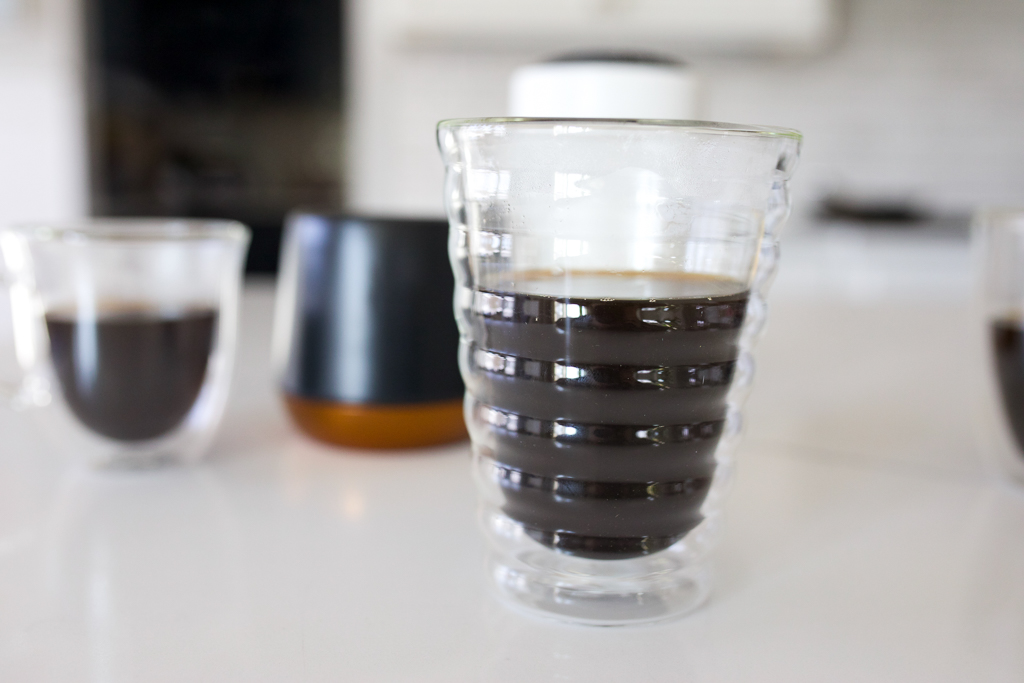
Add Salt
Still have sour coffee? Add a pinch of salt to your coffee and stir it!
Salt masks the flavor of bitterness in coffee. So while it doesn’t make bitterness disappear, many coffee lovers use this hack to trick their tastebuds. It blocks the receptors to a bitter flavor.
Clean Your Equipment
Has your beloved coffee carafe received a good, thorough deep clean lately? How about your trusty reusable travel mug? Or have you given your drip coffee maker the attention it deserves lately?
Undoubtedly, one of the most common reasons behind the bitterness in your coffee is the accumulation of old coffee residue and mineral deposits. These elements are repeatedly exposed to hot water, leading to an unpleasant bitterness in our cherished brews.
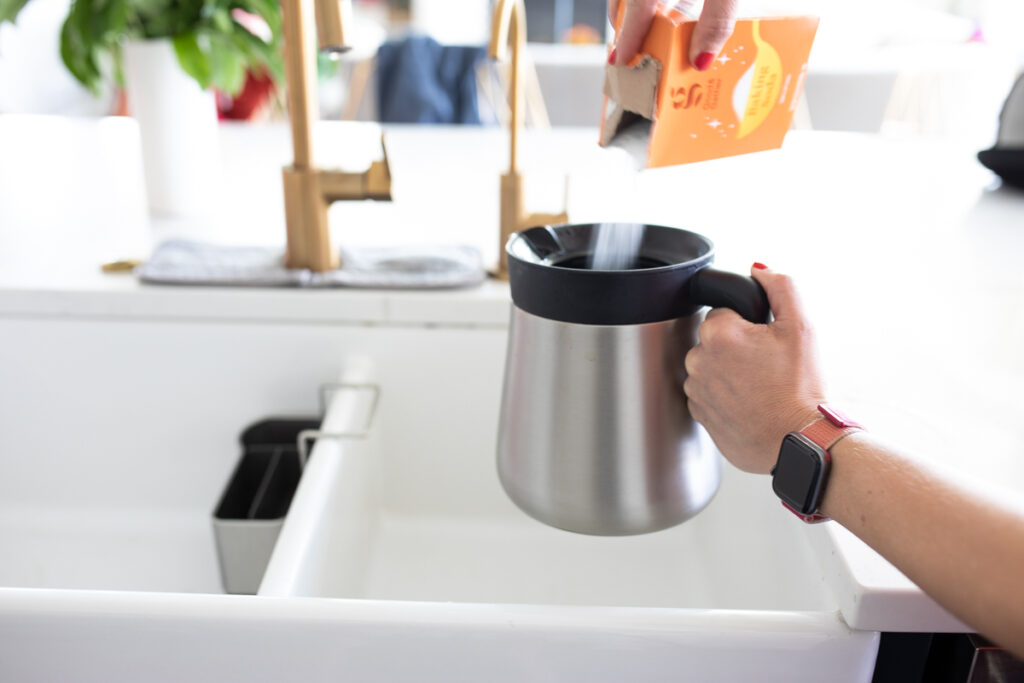
To ensure the elimination of this bitter culprit, it is imperative to regularly deep clean your coffee machine. By doing so, you can steer clear of any unpleasant surprises in your coffee and ensure consistently delightful sips every time you indulge in your favorite morning ritual!
FAQ
I would not add salt to coffee unless you are tasting bitterness. Otherwise, you’ll just wind up with salty coffee. Salt is added to coffee because it blocks the flavor receptors on our tongues that read “BITTER!” when you take a sip of over-extracted or coffee made with dirty equipment. So only add a touch of salt when you taste that coffee bitterness.
Salt is the most reliable ingredient for reducing bitterness in coffee. The tastebuds that register bitter flavor are “turned off” by the presence of salt. When you add salt to your coffee, it allows the other flavors of the coffee to shine through and masks the bitterness.
In the roasting process, beans release chlorogenic acid lactone and phenylindane compounds. This is why darker roast profiles are often more bitter than lighter roast profiles. Caffeine contributes a trace amount of bitterness to coffee regardless of the roast. Though this is usually undetectable or very subtle.
Baking soda assists in neutralizing the bitterness of your coffee and offers prompt relief from the stomach-wrenching effects of the high acidity in coffee, making it gentler on your stomach, which is good to know since coffee I known to have a negative effect on your digestive system.
Arabica coffee beans produce a coffee that is noticeably less bitter than robusta beans. When opting for high-quality arabica coffee, like these high quality beans, especially those roasted lightly to medium, the bitterness is minimized, resulting in a nearly bitter-free cup. For a guaranteed bitter-free experience, consider purchasing coffee from local and independent specialty coffee shop.
